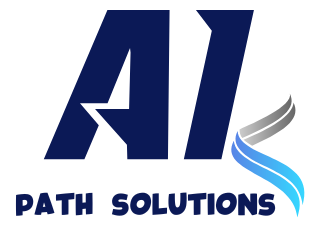As the world becomes increasingly data-driven, artificial intelligence (AI) is emerging as a transformative force in various industries, including accounting. The integration of AI into accounting practices is streamlining operations, enhancing accuracy, and enabling better decision-making. This article explores the applications of AI in accounting, its benefits, challenges, and the future of this technology in the financial sector.
1. Automating Routine Tasks
One of the most significant advantages of AI in accounting is its ability to automate repetitive and time-consuming tasks. Tasks such as data entry, invoice processing, and reconciliation can consume considerable time and resources. AI-driven tools can automate these processes, reducing human error and freeing up accountants to focus on more strategic activities.
For instance, AI-powered software can extract data from invoices and receipts using optical character recognition (OCR) technology, automatically inputting this information into accounting systems. This automation not only speeds up workflows but also increases efficiency, allowing firms to process a higher volume of transactions with greater accuracy.
2. Enhanced Data Analysis
AI excels at processing large volumes of data quickly and accurately. In accounting, this capability can significantly improve financial analysis and reporting. AI algorithms can analyze historical financial data, identify trends, and generate insights that inform business decisions.
For example, AI can help identify unusual spending patterns or discrepancies in financial statements that might indicate fraud or errors. By providing real-time insights, AI enables accountants to make data-driven decisions and proactively address potential issues before they escalate.
3. Improved Financial Forecasting
Accurate financial forecasting is critical for effective business planning. AI can enhance forecasting capabilities by analyzing historical data and identifying patterns that human analysts might overlook. By leveraging machine learning algorithms, AI can make predictions about future revenue, expenses, and cash flow with greater accuracy.
Moreover, AI can continuously learn from new data, improving its forecasting models over time. This capability allows organizations to adjust their financial strategies based on changing market conditions and emerging trends, ultimately leading to more informed decision-making.
4. Risk Management and Fraud Detection
Fraud is a significant concern for accounting professionals, and AI can play a crucial role in detecting and preventing fraudulent activities. AI algorithms can analyze transaction patterns and flag anomalies that may indicate fraudulent behavior. By continuously monitoring transactions in real time, AI can identify suspicious activities that may require further investigation.
Additionally, AI can help organizations assess and manage risks more effectively. By analyzing various risk factors, such as market volatility and economic indicators, AI can provide insights into potential risks and recommend strategies for mitigation. This proactive approach enables firms to safeguard their financial assets and maintain compliance with regulatory standards.
5. Streamlining Tax Compliance
Tax compliance is a complex and often cumbersome process for organizations. AI can simplify tax-related tasks by automating data collection, ensuring accuracy, and identifying applicable deductions and credits. AI-powered tax software can analyze financial data and generate accurate tax returns, reducing the likelihood of errors that could lead to audits or penalties.
Furthermore, AI can help organizations stay updated on changing tax laws and regulations. By analyzing vast amounts of data, AI can identify relevant tax changes and recommend adjustments to compliance strategies, helping firms avoid potential pitfalls.
6. Enhanced Client Communication
AI is also transforming how accounting firms interact with their clients. Chatbots and virtual assistants powered by AI can handle routine inquiries, providing clients with immediate responses and support. This technology improves client satisfaction and allows accountants to focus on more complex issues that require human expertise.
Additionally, AI can analyze client interactions and preferences, enabling firms to tailor their services and communications. By providing personalized experiences, accounting firms can strengthen client relationships and enhance their service offerings.
7. Challenges of Implementing AI in Accounting
While the benefits of AI in accounting are substantial, its adoption comes with challenges. One significant concern is the potential for data security and privacy issues. Accounting firms handle sensitive financial information, and any breach could have serious repercussions. Therefore, organizations must implement robust cybersecurity measures to protect their data.
Another challenge is the potential resistance to change within the accounting profession. Many accounting professionals may be hesitant to adopt AI technologies, fearing that automation could lead to job displacement. It is essential for firms to emphasize that AI is a tool to enhance their work, not replace it. Training and upskilling will be vital in ensuring that accountants can leverage AI effectively.
8. The Future of AI in Accounting
The future of AI in accounting looks promising. As technology continues to evolve, AI will become even more integrated into accounting practices. Innovations in machine learning, data analytics, and natural language processing will enhance the capabilities of AI tools, allowing for more sophisticated financial analysis and reporting.
Moreover, as AI adoption grows, accounting professionals will likely shift their roles to focus more on strategic advisory services rather than routine tasks. This evolution will enable accountants to provide greater value to their clients by leveraging AI-driven insights to inform decision-making.
Conclusion
AI is revolutionizing the accounting profession, offering tools and technologies that enhance efficiency, accuracy, and decision-making. From automating routine tasks to improving financial forecasting and fraud detection, AI is transforming how accounting firms operate.
However, successful implementation of AI in accounting requires careful consideration of data security, employee training, and addressing resistance to change. By embracing AI as a valuable tool, accounting professionals can enhance their services and navigate the evolving landscape of finance with confidence.
As AI continues to advance, the accounting profession will undoubtedly evolve, presenting new opportunities and challenges for practitioners in the years to come.
